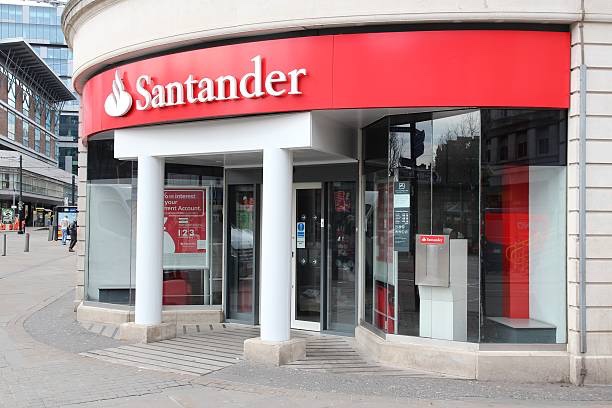In a massive boost for climate action and sustainability, leading banks and the United Nations launched on September 22nd, the Principles for Responsible Banking, with 130 banks collectively holding USD 47 trillion in assets, or one third of the global banking sector, signed up.
In the Principles, launched one day ahead of the UN Climate Action Summit in New York, banks commit to strategically align their business with the goals of the Paris Agreement on Climate Change and the Sustainable Development Goals, and massively scale up their contribution to the achievement of both.
By signing up to the Principles, banks said they believe that “only in an inclusive society founded on human dignity, equality and the sustainable use of natural resources” can their clients, customers and businesses thrive.
With global leaders coming together to share the actions they are taking to attain the Sustainable Development Goals and address climate change this week in New York, UN Secretary-General António Guterres said at the launch event, attended by the 130 Founding Signatories and over 45 of their CEOs, that “the UN Principles for Responsible Banking are a guide for the global banking industry to respond to, drive and benefit from a sustainable development economy. The Principles create the accountability that can realize responsibility, and the ambition that can drive action.”
The Principles are supported by a strong implementation framework that defines clear accountabilities and requires each bank to set, publish and work towards ambitious targets. By creating a common framework that guides banks in growing their business and reducing risks through supporting the economic and social transformation required for a sustainable future, the Principles pave the way for the transformation to a sustainable banking industry.
“A banking industry that plans for the risks associated with climate change and other environmental challenges can not only drive the transition to low-carbon and climate-resilient economies, it can benefit from it,” said Inger Andersen, Executive Director of the United Nations Environment Programme (UNEP). “When the financial system shifts its capital away from resource-hungry, brown investments to those that back nature as solution, everybody wins in the long-term.”
While action on climate change is growing, it is still far short of what is needed to meet the 1.5°C target of the Paris Agreement. Meanwhile, biodiversity continues to decline at alarming rates and pollution claims millions of lives each year.
More ambition, backed by a step change in investment from the private sector, is needed to tackle these challenges and ensure that humanity lives in a way that ensures an equitable share of resources within planetary boundaries.
The banking and private sectors can benefit from the investment they put into backing this transition. It is estimated that addressing the SDGs could unlock USD 12 trillion in business savings and revenue annually and create 380 million more jobs by 2030.
“To transit to low-carbon and climate-resilient economies that support the goals of the Paris Agreement requires an additional investment of at least USD 60 trillion from now until 2050,” said Christiana Figueres, Convener, Mission 2020, who is credited as the architect of the Paris Agreement in her role formerly as Executive Secretary of the UN Framework Convention on Climate Change. “As the banking sector provides over 90 per cent of the financing in developing countries and over two thirds worldwide, the Principles are a crucial step towards meeting the world’s sustainable development financing requirements.”
To coincide with the UN Secretary-General’s Climate Action Summit, one day after the launch of the UN Principles for Responsible Banking, 31 of their Signatories with over $13 trillion in assets announced a Collective Commitment to Climate Action. With this groundbreaking pledge, Founding Signatories of the Principles are taking tangible steps towards putting their commitment to align their business with international climate goals into practice. The commitment was announced during a full-day event on the implementation of the Principles for Responsible Banking, hosted by the thirty banks that led their development.
The Collective Commitment to Climate Action sets out concrete and time-bound actions the banks will take to scale up their contribution to and align their lending with the objectives of the Paris Agreement on Climate, including:
- aligning their portfolios to reflect and finance the low-carbon, climate-resilient economy required to limit global warming to well-below 2, striving for 1.5 degrees Celsius;
- taking concrete action, within a year of joining, and use their products, services and client relationships to facilitate the economic transition required to achieve climate neutrality;
- being publicly accountable for their climate impact and progress on these commitments.

Carlos Hank González, Chairman of the Board of Directors, Grupo Financiero Banorte, said: “Banks have to assume a true social commitment and align ourselves with people’s priorities. Signing the Principles for Responsible Banking commits us to continue contributing to the sustainable development of our country and to face together Mexico’s greatest challenges”
Banco Santander Executive Chairman, Ana Botin, said “Every business has a responsibility to tackle today’s global challenges. At Santander we’ve worked together to deliver profit with purpose – ensuring that our day to day operations help more people and businesses prosper in a sustainable way. We have ambitious targets for areas like financial empowerment, green finance, and gender diversity among others. And now we need to do more by collaborating, sharing best practice, and encouraging more businesses and individuals to act in a responsible way to the benefit of all.”
For a complete list of all banks that have become the Founding Signatories of the Principles for Responsible Banking today and quotes from CEOs please click here.




